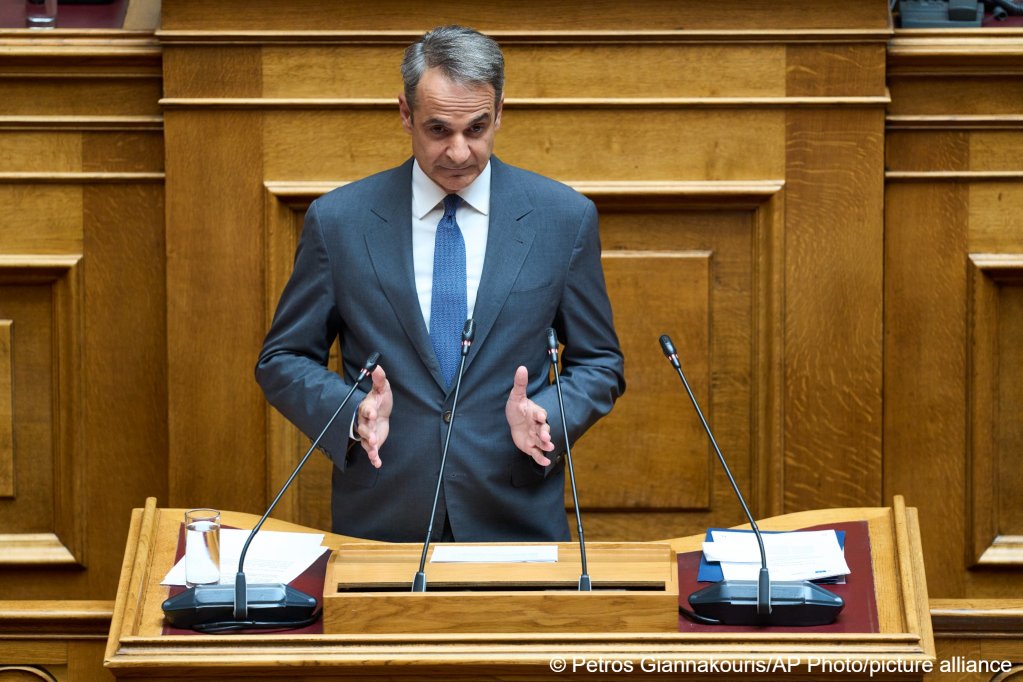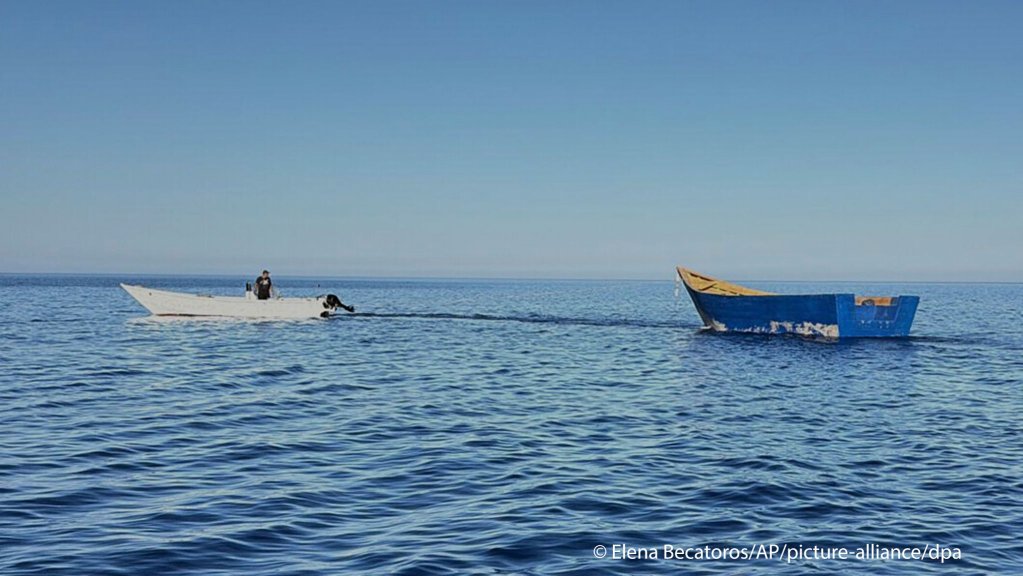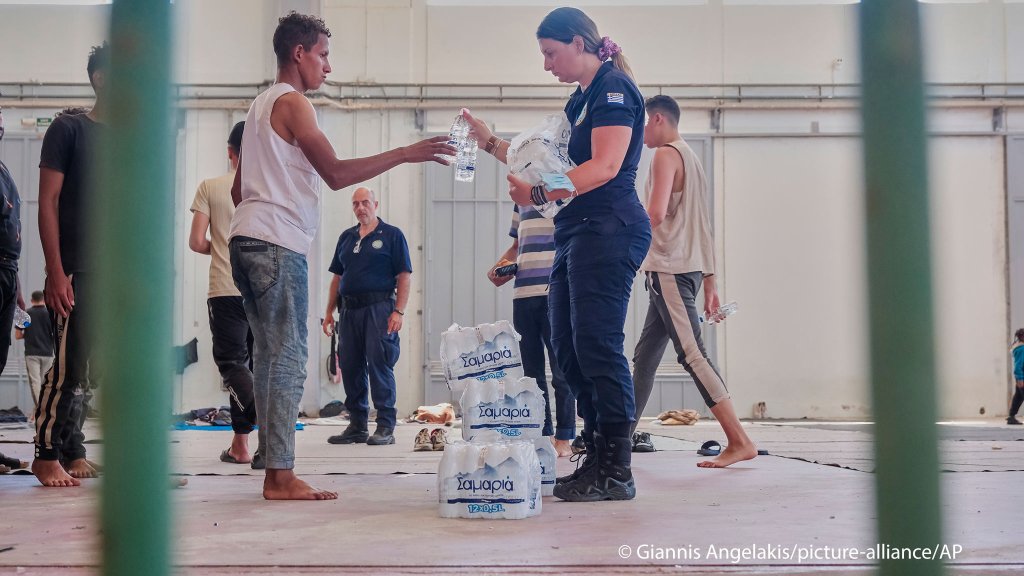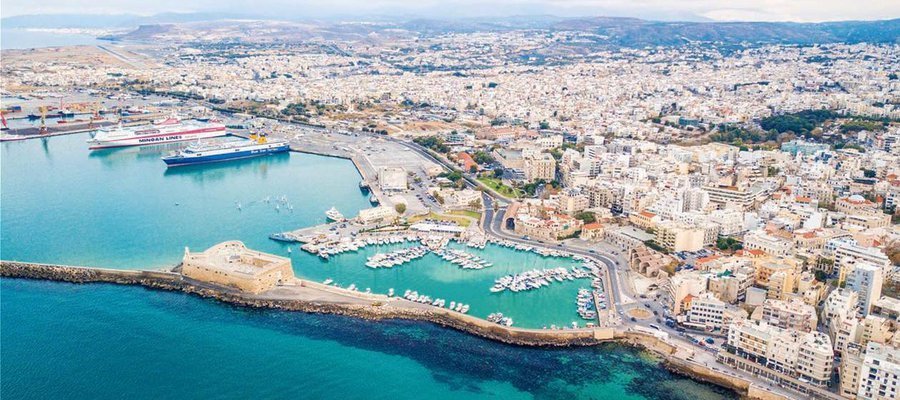The Greek government announced on Wednesday that it would be suspending the processing of asylum applications for an initial period of three months for those arriving by sea from North Africa.
In the last few days, more than 2,000 migrants have arrived on the southern Greek islands of Gavdos and Crete on boats from Libya. Speaking in parliament, the Greek Prime Minister Kyriakos Mitsotakis described it as "an emergency situation" and said the situation "clearly demands emergency measures."
That is why "the Greek government has decided to suspend the processing of asylum applications for an initial period of three months for those arriving by sea from North Africa," said Mitsotakis.

This suspension will only apply to those arriving on Crete and Gavdos, added Mitsotakis. Migrants "entering illegally will be detained." Legislation to make the asylum suspension binding is expected to be put to parliament on Thursday (July 10), reported the French news agency Agence France Presse (AFP).
Gavdos has a permanent population of around 100 people and no accommodation for migrants. Crete is also struggling to cope with the number of arrivals, reported the news agency Reuters.
Most of the migrants making the journey from Libya come from the Middle East, North Africa, Sudan, Egypt and Bangladesh.
Read AlsoGreece deploys naval vessels near Libya to deter migrant arrivals in Crete
Firm message to smugglers: 'Greece is closing'
The Greek Prime Minister said that his government wanted to "send a firm message: the route to Greece is closing, and that message is directed at all human traffickers."

On Tuesday night into Wednesday (July 9), a fishing trawler with 520 migrants on board was intercepted off Crete. The boat had set off from Libya, stated the Greek authorities.
Mitsotakis’ government is also hoping to build a detention facility on Crete. Greece already said that it was going to send naval ships to southern Greek waters to try and deter further crossings.
Also on Tuesday, the Hellenic coast guard said in a press release that they had been called to a boat "in a difficult situation" off Gavdos. A Liberian-flagged ship went to the scene and picked up 67 migrant men, "all in good health. These, stated the coast guard, were transferred to a Frontex ship and transported to the Cretan port of Agia Galini. They were then taken to temporary accommodation in Rethymno.
Read AlsoHundreds of migrants rescued near Greek island of Crete
Arrivals continue
At lunchtime on Tuesday, the Greek coast guard on Crete was also called to help another boat with 45 male migrants on board. This time, they were picked up by a Kuwaiti-flagged cargo ship in the area, and then transferred to a lifeboat and transported to the port of Chora Sfakion. They were then taken by bus to temporary accommodation in Agia Chania on Crete.
The Greek government reportedly sent a "bulk carrier" that took all of the migrants on board the fishing boat to the port of Lavrio, near Athens, where all those on board were detained on the Greek mainland.

Similar groups of arrivals have been taking place all week. On July 7, the Greek authorities rescued 35 migrants south of Gavdos and arrested a 19-year-old Egyptian national suspected of trafficking the others. The group said they paid to cross the Mediterranean from Tobruk.
Also on Monday, a Frontex vessel located an inflatable boat with 55 migrants on board, 48 men and seven minors. They also said they had set off from Tobruk in Libya on July 5. The Heraklion port authority arrested two Sudanese nationals, aged 19 and 18, who were identified by the rest of the group as "traffickers," stated the press release.
The UN Refugee Agency (UNHCR) last updated its Greek arrivals data on July 6, reporting that nearly 20,000 migrants (19,790) have arrived in Greece since the beginning of the year -- more than 7,000 of them on Crete. Depending on how many of the roughly 2,000 additional arrivals since Sunday landed on the island, that figure could be nearing or exceeding 9,000 by now.
Read Also Migrant arrivals to Crete increase sharply from Libya

Arrivals from eastern Libya
Crete is one of Greece’s top tourist destinations, and the holiday season is already in full swing. In recent days, locals and tourism operators on the island have become angry as they fear that news of thousands arriving could cause cancellations or changes to people’s holiday plans.
Many of those arriving on Crete recently have set off from eastern Libya, a part of the country governed by Field Marshal Khalifa Haftar, and in opposition to the UN-recognized Libyan authorities in Tripoli in the west of the country.
Greece has been urging the EU to seek even more direct collaboration with the Libyan authorities to try and deter migrants from leaving the coast and heading towards Greece.
Greek officials accompanied the EU Migration Commissioner, Magnus Brunner, to Libya yesterday to visit both Field Marshal Haftar in Benghazi as well as the Libyan Prime Minister in Tripoli. However, at the last minute, some officials were refused entry to the eastern part of Libya, throwing obstacles in the EU’s plans to draw up further agreements with both parts of Libya to ensure more controls on migration management.
Italian Interior Minister Matteo Piantedosi posted a video of the trip on his X page. In the caption he wrote: "Today, alongside the European Commissioner for Internal Affairs and Migration, Magnus Brunner, as well as the Greek Minister for Migration and Asylum Athanasios Plevris, and the Maltese Interior Minister Byron Camilleri, we met with the Libyan Prime Minister in Tripoli, Hamid Debeibeh. The delegation also met with the Libyan Minister of Foreign Affairs and the Internal Minister.
Piantedosi said the delegation's aim was to "prevent the departure of illegal migrants, block the human traffickers and interrupt maritime and land border traffic. To do that," continued the Italian minister, "we need to keep developing European programs, dedicated to fighting transnational criminal gangs and support the management of irregular migration."
Read AlsoShipwreck off Crete: Greek coast guard rescues 42, searches for missing
EU support for Libya
The European Commission has been supporting Libya in managing migration for many years. Since 2015, via the EU Trust Fund for Africa.
Between 2015 and 2021, the EU Trust Fund for Africa served as the main tool for the EU to support Libya in the area of migration. In that time period, the EU committed a total of 465 million euros. Implementation of those projects paid for with that money is expected to continue until at least the end of this year.
Between 2021 and 2027, the EU also committed a further 65 million euros to Libya via the Neighborhood Development and International Cooperation Instruments (NDICI) "with a focus on protection and border management."
Another 25 million euros was allocated to Libya to help with returns and reintegration, and a document from 2024 stated that there would be more money to help Libya fight trafficking and smuggling, but the actual sum was going to be "confirmed at a later stage."
The EU says that it has been working "to protect migrants and refugees and support local communities in Libya, while taking action to reduce irregular departures through border management and anti-smuggling and trafficking in human beings."
With Reuters, AFP and AP
